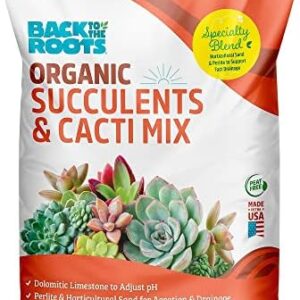As we become more aware of the impact of human activities on the environment, the need for sustainable agriculture practices has become increasingly important. One key aspect of sustainable agriculture is the role of plants in maintaining healthy ecosystems and supporting food production. In this article, we will take a deep dive into plant science and explore the various ways in which plants contribute to sustainable agriculture.
Plants are the foundation of any ecosystem, providing food, shelter, and oxygen for all living beings. In agriculture, plants play a crucial role in food production, providing the necessary nutrients for human consumption. But plants do much more than just provide food. They also help to maintain soil fertility, prevent erosion, and enhance biodiversity.
One of the key ways in which plants contribute to sustainable agriculture is through their ability to capture carbon dioxide from the atmosphere and sequester it in the soil. This process, known as carbon sequestration, helps to mitigate climate change by reducing the amount of greenhouse gases in the atmosphere. Plants also play a key role in the water cycle, helping to regulate the flow of water through ecosystems and preventing soil erosion.
In addition to their environmental benefits, plants also play a key role in promoting biodiversity in agricultural ecosystems. By providing food and shelter for a wide variety of insects, birds, and other animals, plants help to create a healthy and balanced ecosystem that can better withstand environmental stresses such as drought and disease. In fact, many sustainable agriculture practices are designed to mimic natural ecosystems, with diverse plant species grown together to promote biodiversity and resilience.
One area of plant science that is particularly important for sustainable agriculture is plant breeding. By developing new crop varieties that are more resilient to environmental stresses such as drought, pests, and diseases, plant scientists can help to improve the productivity and sustainability of agricultural systems. Plant breeding techniques such as genetic engineering and selective breeding have already led to significant advances in agriculture, with crops that are more productive, nutritious, and resilient to environmental stresses.
Another key aspect of plant science is soil health. Healthy soil is essential for sustainable agriculture, providing the necessary nutrients for plant growth and supporting a diverse ecosystem of microbes, fungi, and other organisms. Plants play a key role in maintaining soil health by cycling nutrients, building soil structure, and improving water retention. By using practices such as cover cropping, crop rotation, and organic farming, farmers can help to improve soil health and productivity, reducing the need for harmful chemical fertilizers and pesticides.
Finally, plants also play a key role in human health and nutrition. Many plant species are rich sources of vitamins, minerals, and other essential nutrients that are important for human health. By promoting the consumption of a diverse range of plant-based foods, we can help to improve our own health and reduce the impact of agriculture on the environment.
In conclusion, plants play a vital role in sustainable agriculture, providing food, shelter, and oxygen for all living beings. By understanding the complex interactions between plants, animals, and the environment, we can develop more sustainable agriculture practices that promote biodiversity, improve soil health, and reduce the impact of agriculture on the environment. Plant science is a key tool in this effort, helping us to develop new crop varieties, improve soil health, and promote a more sustainable approach to food production. By exploring the role of plants in sustainable agriculture, we can work towards a more resilient and sustainable food system that benefits both people and the planet.






